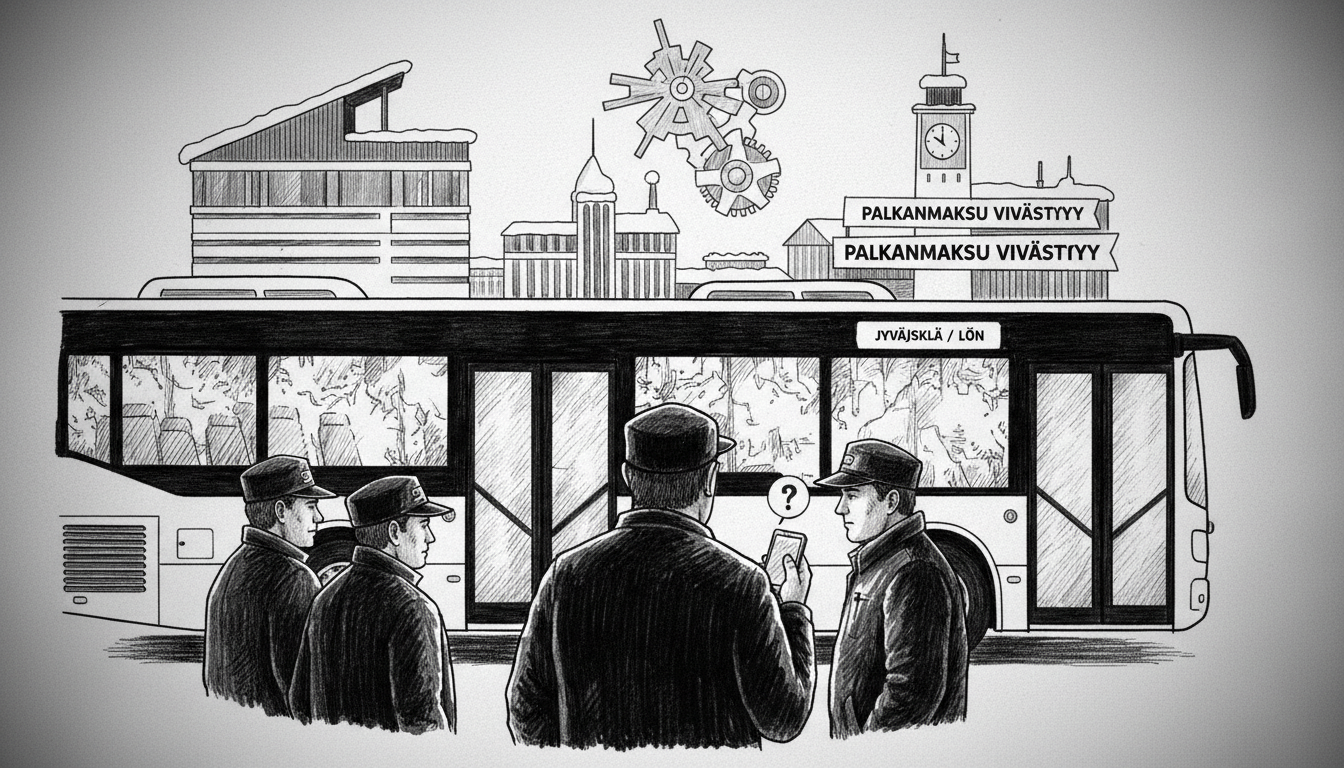Bus drivers in Jyväskylä, Finland are experiencing payment delays as their employer transitions to a new payroll schedule. Koiviston Auto Group has aligned payment systems across its regional operations, creating temporary disruptions for existing employees.
The company recently completed change negotiations to standardize pay schedules according to its Helsinki division's model. Drivers in Jyväskylä, including those operating Linkki local transport services, now face a one-week delay in receiving their wages.
Jukka Hämäläinen, the chief shop steward for Koiviston Auto in Jyväskylä, expressed concerns about the transition. He noted that while Helsinki employees understood the payment schedule when hired, existing Jyväskylä workers face unexpected financial disruption.
Under the previous system, Jyväskylä drivers received biweekly pay every Friday following their work period. The Helsinki model delays payment by an additional week, creating cash flow challenges for affected employees.
The transition period creates immediate financial pressure. The scheduled November 7th payday has been postponed, with payments now expected the following week.
This situation highlights broader challenges in Finland's transport sector. Labor agreements and payment structures vary significantly between regions, creating complications during corporate consolidations.
Finland's strong worker protection laws require companies to conduct change negotiations when altering employment terms. However, the practical implementation can still create temporary hardships for employees.
The payment delay affects drivers serving central Finland's public transport network. Many depend on predictable income to manage household expenses in a country known for high living costs.
What does this mean for public transport reliability? Drivers facing financial uncertainty may experience added stress while performing safety-sensitive work. The situation warrants monitoring as the new payment system stabilizes.
Labor representatives continue working with management to minimize disruption. The outcome could influence how other Finnish transport companies handle regional payroll integrations.
International readers should understand that Finland typically maintains strong labor protections. This case represents an exception rather than the norm in Nordic employment practices.

